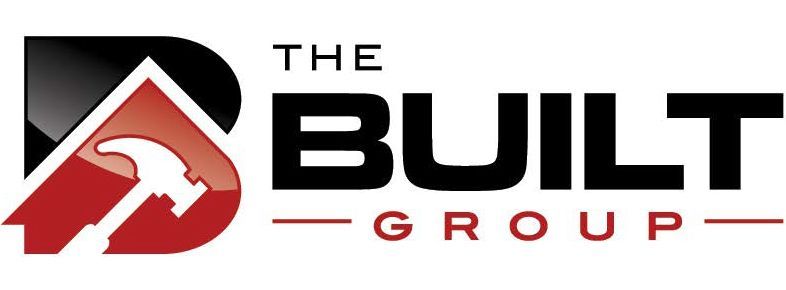Important Questions Every Homeowner Should Ask a Renovation Contractor
Why Choosing the Right Contractor for Home Renovation Matters
Hiring a contractor for home renovation is not just a financial decision—it’s a personal one. You're trusting someone to work inside your most valuable asset: your home. The home renovation contractor you choose sets the tone for everything—from the quality of the craftsmanship to the communication you’ll receive throughout the process.
Toronto homeowners face unique challenges. With rising costs, building permit requirements, and shifting timelines, hiring the wrong renovation contractor can cost more than money—it can affect your comfort and timeline.
A general contractor isn’t just someone who builds. They manage the entire renovation project from design to delivery—coordinating licensed trades, tracking budgets, overseeing schedules, and guiding every decision that affects your living space.
Clarify the Purpose of Your Home Renovation
Before you start comparing prices or collecting design inspiration, take the time to identify the purpose behind your home renovation project. Whether you're looking to increase space for a growing family, plan a kitchen renovation, update a bathroom, finish your basement for guests, or consider a full home addition, knowing your “why” helps shape the right plan.
Homeowners who begin with clear objectives are more likely to stay focused and achieve a result that aligns with their expectations.
Why Pre-Construction Planning Is Essential
The most overlooked phase of any house renovation is planning—and it’s also the most important. Professional general contracting companies guide clients through a pre-construction process that includes design development, finish selections, budgeting, structural reviews, and permit preparation.
This planning phase reduces the likelihood of last-minute decisions, timeline overruns, and mid-project change orders. Whether you’re managing a custom home build, a condo renovation, or basement finishing, early clarity leads to smoother execution.
Understand the Difference Between an Estimate and a Quote
Many homeowners assume an estimate and a quote are the same. They’re not. An estimate is a ballpark guess based on limited information. A quote is an accurate, fixed cost developed from finalized plans, selected materials, and confirmed scope of work.
Contractors who quote before discussing details may expose you to significant cost changes later. Always request a verified quote backed by proper planning.
What Belongs in a Renovation Contract
Every home renovation should be backed by a clear, legally binding contract. It should outline the exact scope of work, the fixed project cost, timelines and milestone payments, insurance verification, change order procedures, and warranty terms.
A strong contract should also attach your design documents and finish selections. This creates shared understanding and reduces the risk of disputes later.
How Change Orders Should Be Handled
Even the most thorough plans may require changes. Unforeseen structural issues or updated design decisions can lead to adjustments in scope or cost.
What matters is how your home remodeling contractor manages those changes. Work should not proceed until the cost is explained and approved in writing.
Expect Weekly Communication as a Baseline
Renovations are complex. Communication should never be an afterthought. Expect weekly progress updates as a standard service.
These updates should explain what’s been completed, what’s coming next, any issues that have arisen, and what decisions—if any—are required. Clear communication keeps homeowners involved and minimizes surprises.
Understand the Real Cost of Delays
Project delays are more than a scheduling inconvenience—they have real financial impact. If you're in temporary housing, every week of delay adds to your costs. Even if you're living at home during construction, extended timelines increase disruption.
Delays are often caused by poor planning, missing information, or supply chain mismanagement. A project manager with strong project management skills reduces these risks.
Why the Lowest Bid Isn’t Always the Best Deal
Choosing a contractor based solely on price can lead to problems. Incomplete quotes, subpar materials, and unqualified trades can result in disappointing results. What seems like savings can quickly turn into cost overruns, delays, or worse—structural or code violations.
Contractors who provide accurate, transparent pricing are more likely to deliver a quality renovation experience.
What Separates Professional Renovation Companies
A well-established general contracting company brings more than trades—they bring structure and support. That typically includes a project manager, coordinators, designers, engineers, and skilled licensed professionals.
This structure is critical in complex projects such as kitchen renovations, bathroom renovations, full home remodeling, or large home additions.
What to Ask Before Signing a Contract
Before making your final decision, ask questions such as:
- How do you handle design development?
- Will you manage permits and inspections?
- What happens if I want to make a change mid-project?
- Who will be my main point of contact?
- How often will I receive updates?
- Do you warranty your work?
If a potential contractor hesitates or gives vague answers, move on.
Get It Right the First Time
Home renovation services are an investment in your property and lifestyle. Whether you’re planning a kitchen remodel, a bathroom renovation, a basement renovation, or even an exterior renovation, you deserve exceptional craftsmanship and reliable delivery.
When the renovation process is managed well from the beginning, you avoid common pitfalls and enjoy results that last.
Frequently Asked Questions
What questions should I ask a contractor before starting a renovation?
Ask about their process for planning and quoting, how they handle permits, change orders, communication frequency, and who your main contact will be. Confirm whether they provide written contracts and back their work with a warranty.
What’s the difference between a renovation quote and an estimate?
An estimate is a rough guess. A quote is a confirmed price based on finalized plans and selected materials.
Why is pre-construction planning so important in home renovations?
It allows decisions—design, finishes, scope, and timelines—to be finalized before construction begins. This minimizes delays and budget surprises.
How do I avoid renovation delays and budget overruns?
Choose a home remodeling contractor that emphasizes planning and detailed quoting. Avoid selecting based only on price.
What should be included in a renovation contract?
Scope of work, costs, payment schedule, timeline, change order policy, insurance, warranties, and supporting documents such as design drawings.


